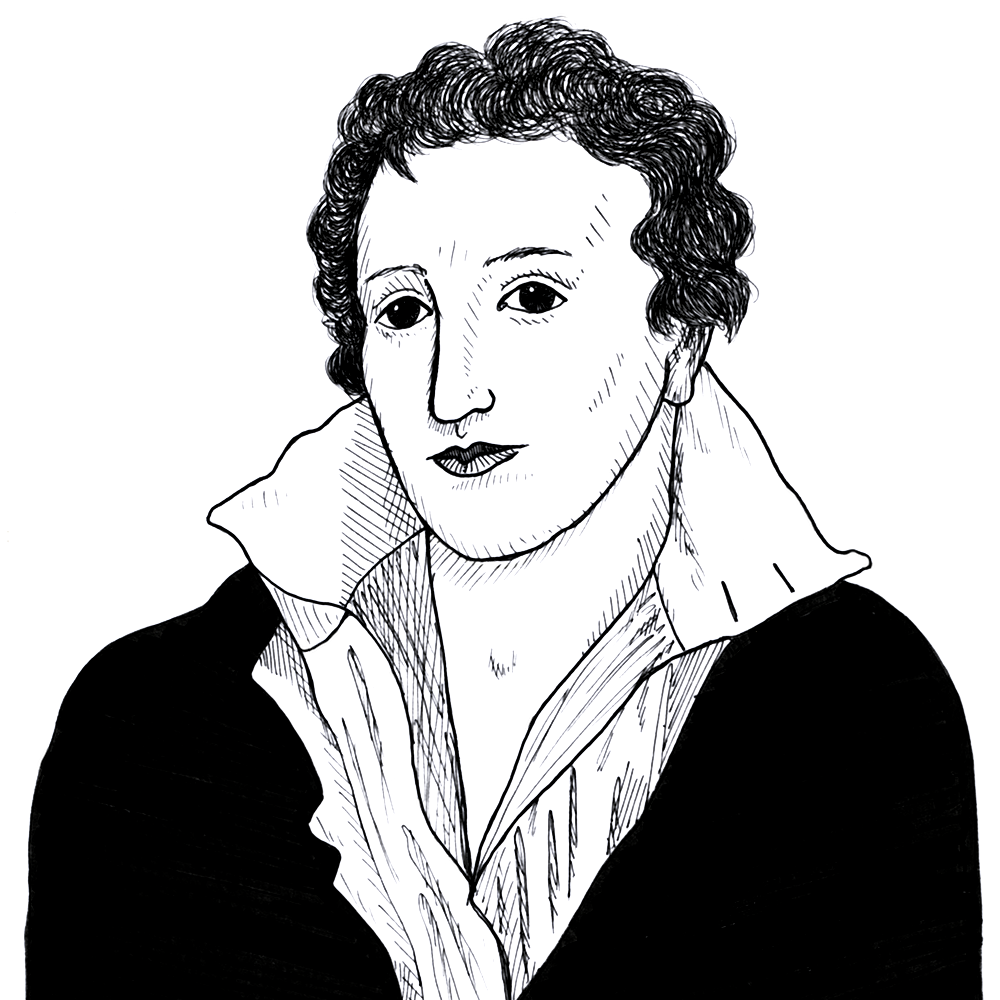
Percy Bysshe Shelley on the new Constitution of Naples which he hoped would be “as a mirror to make … blind slaves see” (1820)
Found in: Posthumous Poems (1824)
Percy Bysshe Shelley wrote "Ode to Naples (1820)" on hearing about the proclamation of a Constitutional Government at Naples:
Literature & Music
ANTISRHE β. 2. From Freedom’s form divine, From Nature’s inmost shrine, Strip every impious gawd, rend Error veil by veil: O’er Ruin desolate, O’er Falsehood’s fallen state Sit thou sublime, unawed; be the Destroyer pale! And equal laws be thine, And winged words let sail, Freighted with truth even from the throne of God: That wealth, surviving fate, Be thine.—All hail!